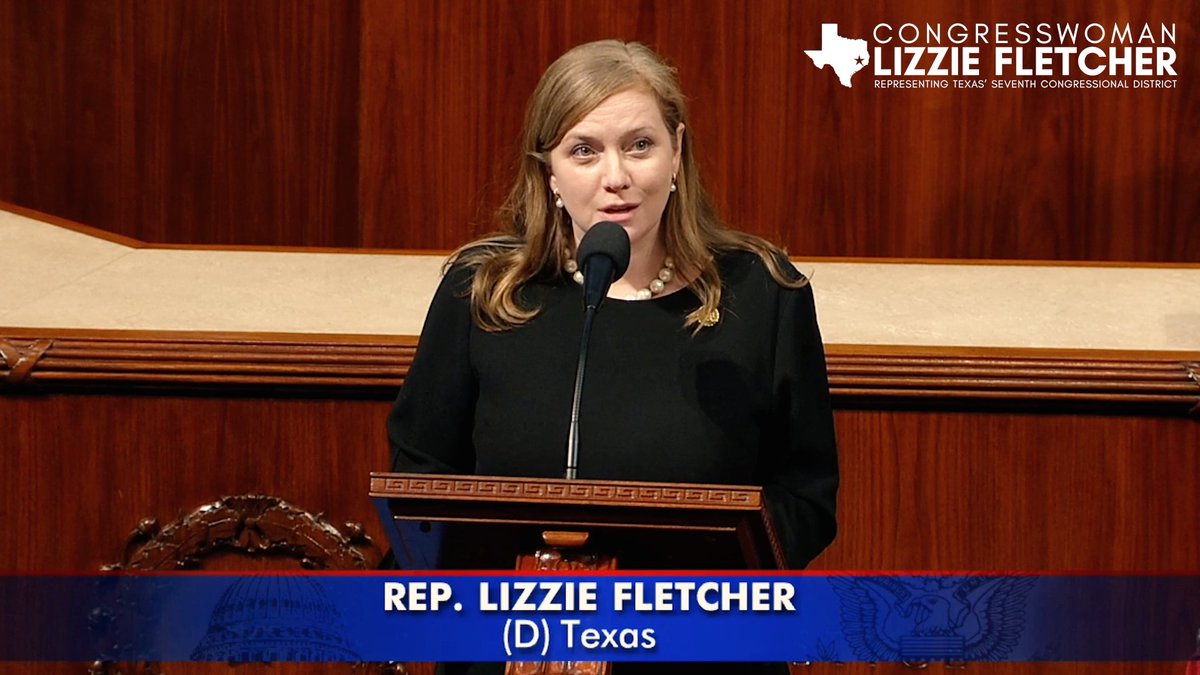Congresswoman Lizzie Fletcher Reintroduces Bipartisan Legislation To Strengthen Coastal Revenue Sharing Program

Washington, D.C.—Congresswoman Lizzie Fletcher (TX-07) reintroduced the bipartisan Reinvesting in Shoreline Economies and Ecosystems (RISEE) Act along with Congressman Don Davis (NC-01), Congressman Randy Weber (TX-14) Congresswoman Anna Eshoo (CA-16), Congresswoman Nancy Mace (SC-01), and Congresswoman Abigail Spanberger (VA-07). This legislation, which Congresswoman Fletcher also introduced in the last Congress, helps protect coastal communities by creating a new stream of funding for coastal infrastructure and flood resiliency projects and helps incentivize new clean energy projects. Senator Sheldon Whitehouse (D-RI) and Senator Bill Cassidy (R-LA) introduced this legislation in the U.S. Senate today.
“Along the Texas Gulf Coast, we know all too well the devastating impacts of flooding and disasters as well as the way that visionary projects can help protect our communities,” said Congresswoman Lizzie Fletcher. “The RISEE Act will help make it possible for us to invest in these vital coastal protection projects by giving states a portion of the revenue generated from offshore wind and energy projects, providing incentive for future projects. I am glad to partner with Representatives Davis, Weber, Eshoo, Mace, and Spanberger to reintroduce this legislation in the House and with Senators Whitehouse and Cassidy in the Senate to protect our communities, our ecosystems, and our economy.”
“Residents across the Inner Banks know all too well that there has been chronic underinvestment in coastal restoration and flood mitigation — leaving their community vulnerable to flooding and disasters,” said Congressman Don Davis. “The bipartisan RISEE Act would have federal funds flow to North Carolina to ensure critical funding for coastal infrastructure and resiliency to safeguard the communities most impacted by sea level rise and coastal erosion.”
“The Texas Gulf Coast is home to millions of people, countless homes and jobs, and numerous refineries,” said Congressman Randy Weber. “The RISEE Act would advance critical restoration and resilience projects to ensure our coastline has the necessary investments to help protect against future storms. This is vital for the Gulf Coast region and our nation.”
Current law requires all revenues generated from offshore wind leases and production beyond six nautical miles from states be sent to the U.S. Treasury. The RISEE Act amends this to send 37.5 percent of offshore wind revenue to states within 75 miles of offshore wind farms. By sharing offshore wind revenues with nearby states, the RISEE Act offers incentives for state and local governments to facilitate successful siting processes and to get turbines up and running in their regions. The RISEE Act will allow for more equitable resource sharing between states, the federal government, and conservation programs.
State funds from offshore wind revenue could be used:
- For coastal restoration, hurricane protection, or resiliency infrastructure;
- To mitigate damage to fish, wildlife, or other natural resources, including through fisheries science and research; or
- To implement a marine, coastal, or conservation management plan.
Additionally, 12.5 percent of offshore wind revenues would serve as a further dedicated funding source for the National Oceans and Coastal Security Fund (NOCSF). This fund provides competitive grants to coastal communities to respond to coastal erosion and sea level rise, restore coastal habitat, and make improvements to coastal infrastructure.
The RISEE Act also amends the Gulf of Mexico Energy Security Act (GOMESA) to create a new stream of funding by equalizing mineral rights revenues for offshore leases and devoting that money to coastal resiliency and flood mitigation projects.
The bill amends GOMESA by:
- Eliminating the state revenue sharing cap, currently set at $375 million;
- Lifting the Land & Water Conservation Fund’s state side funding cap of $125 million;
- Adding the NOCSF as a fourth GOMESA equity (12.5%);
- Making oil and gas leases from 2000-2006 eligible for future GOMESA payments to Gulf Coast states and the NOCSF. Currently, only leases from 2007 to present are eligible for GOMESA payments. EIA reports 11 new oil and gas fields in the Gulf of Mexico that will contribute to the overall growth in U.S. production are GOMESA eligible under current law, and another eight would qualify under this proposed change; and
- Protecting GOMESA revenues from sequestration.
Last year, Congresswoman Fletcher introduced the RISEE Act in the House of Representatives, gathering more than 30 cosponsors and receiving endorsements from twenty organizations.
This year, the American Clean Power Association, American Saltwater Guides Association, American Shore & Beach Preservation Association, American Sportfishing Association, Atlantic States Marine Fisheries Commission, AVANGRID, Center for Sustainable Engagement and Development, Citizens Climate Lobby, Citizens for Responsible Energy Solutions, City Parks Alliance, Coastal States Organization, Congressional Sportsmen’s Foundation, Ducks Unlimited, Environmental Defense Fund, Fugro, Joint Ocean Initiative Commission, National Association of State Energy Officials, National Audubon Society, National Marine Manufacturers Association, National Ocean Industries Association, National Ocean Policy Coalition, National Recreation and Parks Association, National Wildlife Federation, The Nature Conservancy, Ocean Conservancy, Orsted, Theodore Roosevelt Conservation Partnership, and Trust for Public Land have endorsed the RISEE Act at the time of its introduction.
To view full text of the RISEE Act, click here.
Congresswoman Lizzie Fletcher represents Texas’ Seventh Congressional District in the greater Houston area. She has represented the district since 2019 and serves on the House Energy and Commerce Committee.























